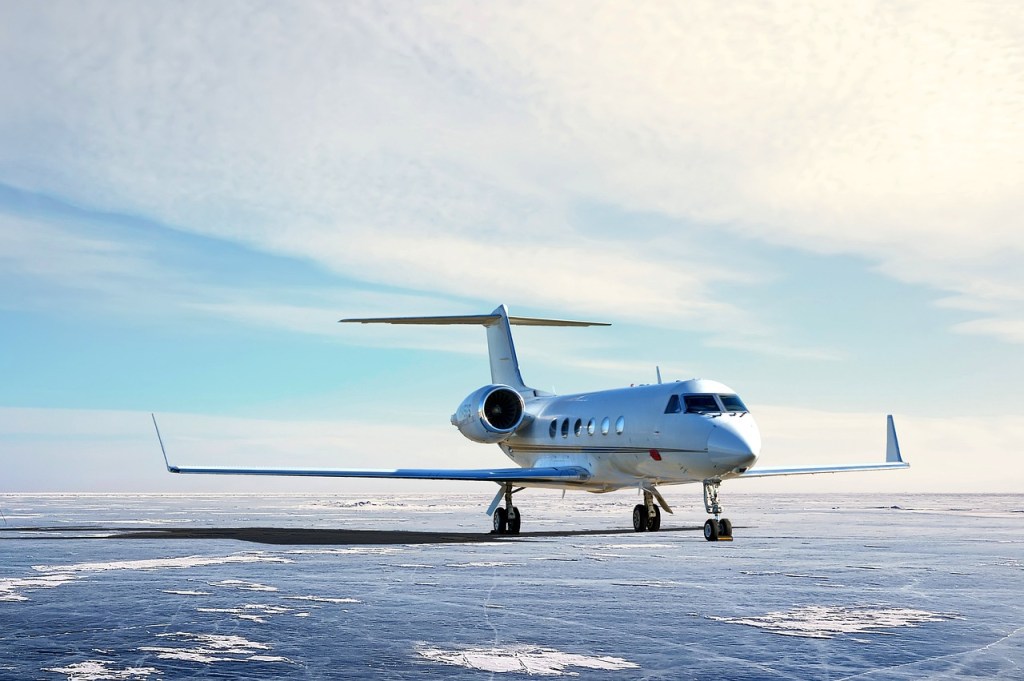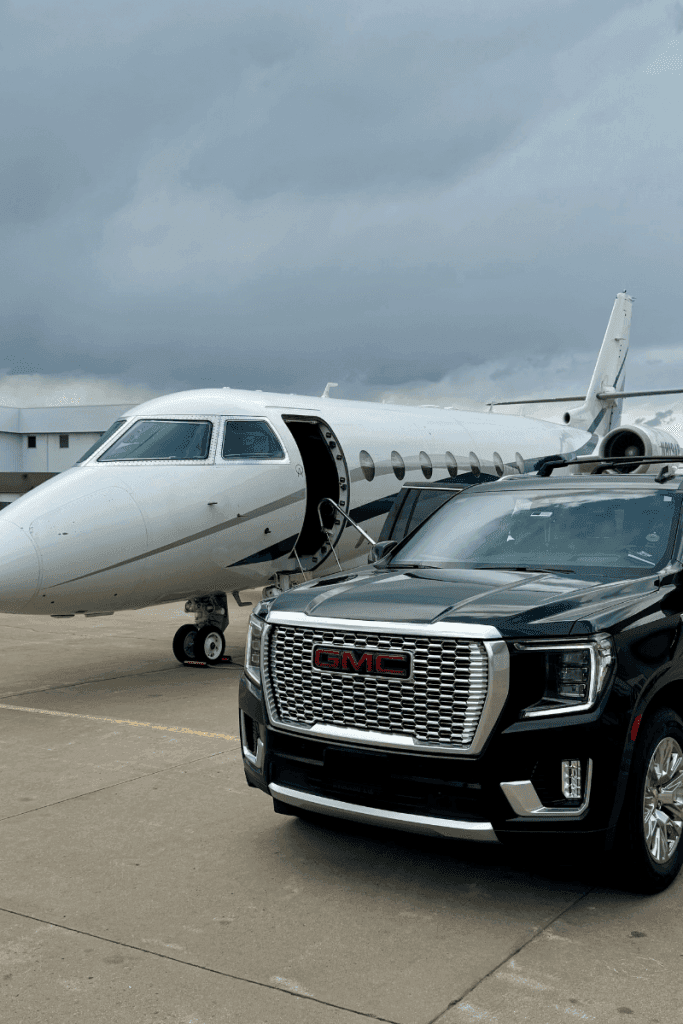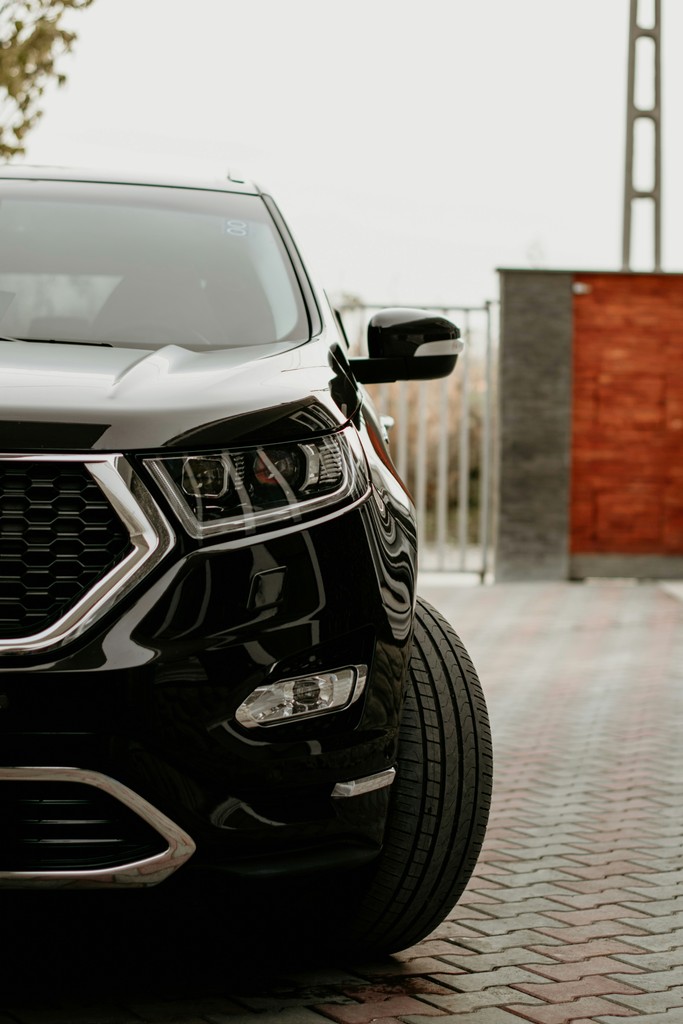

Green Transportation: The Rise of Eco-Friendly Journeys in Luxury Travel
Jul 2, 2024
Explore the evolving landscape of ‘Eco friendly luxury travel’ with AvoLimo Express. Discover how we blend luxury with sustainability to offer refined travel experiences that respect our planet.
The Evolution of Eco-Luxury Travel
The concept of luxury travel has transformed significantly. Traditionally associated with opulence, today’s luxury travel incorporates sustainable practices without sacrificing comfort.
Hotels and Resorts: Many luxury hotels and resorts are now incorporating sustainable practices into their operations. For example, The Brando in French Polynesia utilizes solar power extensively, and Sukhothai Shanghai has eliminated single-use plastics and sources organic, local ingredients for its dining services. These establishments not only reduce their environmental impact but also cater to the growing number of travelers seeking sustainable options (Lulu’s Luxury Lifestyle).
Eco-Lodges: Eco-lodges have been pioneers in combining luxury with sustainability. Origins Lodge in Costa Rica and Wolwedans in Namibia are prime examples. Origins Lodge practices include a fully ecological water system and sustainable food production, while Wolwedans focuses on comprehensive sustainability practices across its operations, contributing to local conservation and community benefits (Luxury Ship Travel).
Destination Experiences: Various destinations are focusing on sustainable tourism that doesn’t compromise the luxurious feel of a vacation. For instance, small-group luxury tours offered by companies like Geographic Expeditions provide immersive experiences that are both ethical and sustainable, emphasizing small-scale, high-quality experiences that support conservation efforts and local communities (Adventures Abound).
These examples show that the luxury travel industry is increasingly aligning with sustainable practices, offering high-end, environmentally conscious travel experiences that appeal to today’s eco-aware travelers. This trend is set to continue as more consumers prioritize sustainability alongside luxury in their travel choices.
Green Transportation Options
Innovating Luxury Travel: Sustainable Transportation Solutions
In the realm of green transportation options for luxury travel, recent innovations and real-world applications are setting new standards across various modes of transport. Here are some notable examples:
Electric Vehicles (EVs): Luxury electric vehicles, led by brands like Tesla, are becoming increasingly popular. Tesla’s advancements in electric technology have not only established EVs as a viable option for luxury travel but have also driven the automotive industry towards sustainable practices. Tesla’s Model S and Model X, known for their performance and luxury features, are prime examples of how electric vehicles can deliver both sustainability and high-end amenities (Green.org) (MDPI).
Hybrid Models: Hybrid vehicles, which use a combination of electric motors and traditional combustion engines, offer a balance of enhanced fuel efficiency and reduced emissions. These vehicles are particularly appealing in the luxury segment, where they are engineered to provide a smooth and powerful driving experience without the full environmental impact of traditional engines. The Lexus RX Hybrid and Porsche Cayenne E-Hybrid are examples of luxury hybrids that provide comfort, performance, and greener technology (Green.org) (MDPI).
Biofuel-Powered Jets: In the aviation sector, biofuels are emerging as a sustainable alternative to conventional jet fuels. A significant example includes the efforts by the aviation industry to integrate Sustainable Aviation Fuel (SAF), which is made from sustainable resources like plant materials and waste oils. United Airlines has been a pioneer in this space, operating flights that utilize a blend of biofuel and conventional jet fuel, which significantly reduces carbon emissions compared to traditional fuels. This initiative is part of a broader move towards reducing the carbon footprint of flying, with multiple airlines exploring SAF as a way to decrease environmental impact while maintaining the service and quality expected in luxury travel (IEA) (Energy.gov).
These examples illustrate the practical application of sustainable technologies in the luxury travel sector, demonstrating a strong commitment to environmental stewardship without compromising the quality and exclusivity that luxury travelers expect. These initiatives are crucial as they set a precedent for the integration of sustainability in luxury travel, promising a greener future for the industry.

Benefits of Eco-Friendly Transportation
The adoption of green transportation is not just about environmental ethics but also offers tangible benefits:
Reduced Environmental Impact: Significant reduction in greenhouse gases and pollutants.
Cost Efficiency: Over time, the lower operational costs of EVs and hybrids can lead to savings.
Enhanced Customer Experience: Many travelers feel a heightened sense of satisfaction knowing their luxury experiences are environmentally friendly.
AvoLimo Express’s Commitment to Eco-Conscious Practices
AvoLimo Express is steadfast in its dedication to providing luxury transportation in an environmentally responsible manner. This commitment extends beyond our operations to include the selection of vehicles that embrace eco-friendly advancements. A prime example of such a vehicle in the luxury SUV category is the GMC Yukon Denali, known for its high-end features and performance.

Advancing Green Innovation: GMC Yukon Denali’s Eco-Friendly Enhancements
Advancing Green Innovation: GMC Yukon Denali’s Eco-Friendly Enhancements
While traditionally not known as an eco-friendly vehicle due to its size and class, the GMC Yukon Denali has made strides towards incorporating greener features:
Eco-Friendly Engine Options: The Yukon Denali offers a 3.0-liter turbodiesel engine option, which is more fuel-efficient than traditional gasoline engines. This engine enhances fuel economy and emits fewer greenhouse gases, making it a preferable choice for environmentally conscious consumers.
Efficient Driving Technologies: The Yukon Denali is equipped with technologies to improve fuel efficiency. Features such as advanced transmission systems and active fuel management help optimize fuel consumption. In particular, the active fuel management system can deactivate some engine cylinders in low-demand scenarios, such as cruising on a highway, which reduces fuel usage without compromising performance and comfort.
These features demonstrate that even luxury vehicles traditionally not associated with environmental friendliness are evolving to meet the demands of a more eco-conscious marketplace. AvoLimo Express’s choice to include such vehicles in our fleet underscores our commitment to sustainability, aligning with global efforts to reduce environmental impacts in every sector, including luxury transportation.
By choosing AvoLimo Express, customers enjoy the luxury and comfort expected from high-end transport services and contribute to a more sustainable and responsible approach to luxury travel.
Disclaimer: AvoLimo Express operates a diverse fleet of vehicles, each with different specifications and features. While we strive to enhance our fleet with eco-friendly technologies, not all vehicles will have the same features as those highlighted for the GMC Yukon Denali. We are committed to continuously upgrading our services to align with environmental standards and customer expectations. For specific details on the features available in the vehicle provided for your service, please get in touch with AvoLimo Express directly.
Challenges in Implementing Green Transportation
Transitioning to green transportation is not without challenges:
Technical Limitations: The range and infrastructure for EVs continue to develop.
Financial Investment: Initial costs for green technologies are higher than traditional options.
Market Adaptability: It takes time for consumer habits to align with new technologies.
Future of Eco-Friendly Luxury Travel
The future of eco-friendly luxury travel is shaping up to be quite promising, with several advancements and trends indicating a more sustainable approach to high-end tourism. Here’s a real-world example that can be included in your blog:
There has been a noticeable shift towards sustainable luxury travel in recent years. Technological advancements, renewable energy innovations, and a growing global commitment to environmental stewardship drive this movement. Luxury travel now prioritizes opulence and incorporates eco-friendly practices across various aspects of the experience—from transportation to accommodations and activities.
Technological Advancements and Green Transportation: Innovations in electric and biofuel-powered vehicles are set to transform how we think about travel. Luxury travel entities are increasingly integrating these technologies, offering options that reduce carbon emissions without compromising the quality of the travel experience. This includes everything from electric luxury cars to biofuel-powered private jets, providing high-end travelers with environmentally responsible choices.
Sustainable Destinations and Eco-Luxe Accommodations: Many luxury resorts and destinations are redesigning their facilities to be more environmentally friendly. This includes using sustainable materials in construction, employing energy-saving technologies, and ensuring that they offer amenities that cater to the eco-conscious traveler. These destinations provide luxury experiences that are not only indulgent but also responsible, aiming to minimize environmental footprints.

Experiences Rooted in Nature and Conservation: The luxury travel sector is also trending towards offering experiences that allow travelers to engage directly with nature and participate in conservation efforts. This might involve wildlife safaris that contribute to animal conservation, staying in remote eco-lodges that practice sustainability in every aspect of their operation, or guided tours that emphasize environmental education and conservation.
These trends indicate a robust future for eco-friendly luxury travel. The demand for sustainable options continues to grow, influencing how destinations and businesses cater to discerning travelers. This evolution in the travel industry reflects a broader societal shift towards sustainability, aligning the luxury of travel with the necessity of preserving our planet.
For more insights on future trends in eco-luxury travel, visit the detailed discussions at Luxury Travel Magazine here and Resident Magazine here.
Case Studies
Various luxury travel services around the world have successfully integrated eco-friendly practices. These case studies show significant reductions in carbon emissions and increased client satisfaction, setting a benchmark for the industry.
Lyft: a major ride-hailing industry player, Lyft has committed to becoming a fully carbon-neutral company. This includes investing in carbon offset programs that mitigate the emissions produced by its rides. Lyft has also set goals to transition to autonomous electric vehicles powered by renewable energy by 2025 (Home—rePurpose Global).
Patagonia: Known for its environmental activism, Patagonia not only uses sustainable materials but also encourages consumers to buy less. Their “Don’t Buy This Jacket” campaign discourages unnecessary consumption, promoting the reuse and recycling of garments. This approach has surprisingly led to an increase in sales, demonstrating that sustainability can also be economically viable (Home—rePurpose Global).
Danone: Danone is actively enhancing its sustainability through various initiatives. It is focusing on creating more sustainable packaging solutions, with a significant portion of its packaging being reusable, recyclable, or compostable. Danone also supports environmental efforts through partnerships and investments in recycling infrastructure (Home—rePurpose Global).
Amazon: Amazon has taken significant steps toward sustainable shipping practices. They launched the world’s first methanol-enabled cargo ship, aiming for zero emissions. Additionally, Amazon has made strides in using electric vehicles for package delivery, significantly reducing its carbon footprint in the logistics sector (Fluid Truck).
Amtrak: Amtrak is introducing a new fleet of sustainable trains designed to be significantly more eco-friendly than traditional trains. These trains are expected to produce 90% fewer emissions and are part of Amtrak’s broader initiative to provide environmentally responsible travel options (Fluid Truck).
Join the Green Revolution with AvoLimo Express

Sustainable luxury travel is more than a trend—it’s a necessary evolution. By choosing eco-friendly options like those offered by AvoLimo Express, you contribute to a more sustainable future while enjoying unparalleled luxury.
Explore the evolving landscape of ‘Eco friendly luxury travel’ with AvoLimo Express. Discover how we blend luxury with sustainability to offer refined travel experiences that respect our planet.
The Evolution of Eco-Luxury Travel
The concept of luxury travel has transformed significantly. Traditionally associated with opulence, today’s luxury travel incorporates sustainable practices without sacrificing comfort.
Hotels and Resorts: Many luxury hotels and resorts are now incorporating sustainable practices into their operations. For example, The Brando in French Polynesia utilizes solar power extensively, and Sukhothai Shanghai has eliminated single-use plastics and sources organic, local ingredients for its dining services. These establishments not only reduce their environmental impact but also cater to the growing number of travelers seeking sustainable options (Lulu’s Luxury Lifestyle).
Eco-Lodges: Eco-lodges have been pioneers in combining luxury with sustainability. Origins Lodge in Costa Rica and Wolwedans in Namibia are prime examples. Origins Lodge practices include a fully ecological water system and sustainable food production, while Wolwedans focuses on comprehensive sustainability practices across its operations, contributing to local conservation and community benefits (Luxury Ship Travel).
Destination Experiences: Various destinations are focusing on sustainable tourism that doesn’t compromise the luxurious feel of a vacation. For instance, small-group luxury tours offered by companies like Geographic Expeditions provide immersive experiences that are both ethical and sustainable, emphasizing small-scale, high-quality experiences that support conservation efforts and local communities (Adventures Abound).
These examples show that the luxury travel industry is increasingly aligning with sustainable practices, offering high-end, environmentally conscious travel experiences that appeal to today’s eco-aware travelers. This trend is set to continue as more consumers prioritize sustainability alongside luxury in their travel choices.
Green Transportation Options
Innovating Luxury Travel: Sustainable Transportation Solutions
In the realm of green transportation options for luxury travel, recent innovations and real-world applications are setting new standards across various modes of transport. Here are some notable examples:
Electric Vehicles (EVs): Luxury electric vehicles, led by brands like Tesla, are becoming increasingly popular. Tesla’s advancements in electric technology have not only established EVs as a viable option for luxury travel but have also driven the automotive industry towards sustainable practices. Tesla’s Model S and Model X, known for their performance and luxury features, are prime examples of how electric vehicles can deliver both sustainability and high-end amenities (Green.org) (MDPI).
Hybrid Models: Hybrid vehicles, which use a combination of electric motors and traditional combustion engines, offer a balance of enhanced fuel efficiency and reduced emissions. These vehicles are particularly appealing in the luxury segment, where they are engineered to provide a smooth and powerful driving experience without the full environmental impact of traditional engines. The Lexus RX Hybrid and Porsche Cayenne E-Hybrid are examples of luxury hybrids that provide comfort, performance, and greener technology (Green.org) (MDPI).
Biofuel-Powered Jets: In the aviation sector, biofuels are emerging as a sustainable alternative to conventional jet fuels. A significant example includes the efforts by the aviation industry to integrate Sustainable Aviation Fuel (SAF), which is made from sustainable resources like plant materials and waste oils. United Airlines has been a pioneer in this space, operating flights that utilize a blend of biofuel and conventional jet fuel, which significantly reduces carbon emissions compared to traditional fuels. This initiative is part of a broader move towards reducing the carbon footprint of flying, with multiple airlines exploring SAF as a way to decrease environmental impact while maintaining the service and quality expected in luxury travel (IEA) (Energy.gov).
These examples illustrate the practical application of sustainable technologies in the luxury travel sector, demonstrating a strong commitment to environmental stewardship without compromising the quality and exclusivity that luxury travelers expect. These initiatives are crucial as they set a precedent for the integration of sustainability in luxury travel, promising a greener future for the industry.

Benefits of Eco-Friendly Transportation
The adoption of green transportation is not just about environmental ethics but also offers tangible benefits:
Reduced Environmental Impact: Significant reduction in greenhouse gases and pollutants.
Cost Efficiency: Over time, the lower operational costs of EVs and hybrids can lead to savings.
Enhanced Customer Experience: Many travelers feel a heightened sense of satisfaction knowing their luxury experiences are environmentally friendly.
AvoLimo Express’s Commitment to Eco-Conscious Practices
AvoLimo Express is steadfast in its dedication to providing luxury transportation in an environmentally responsible manner. This commitment extends beyond our operations to include the selection of vehicles that embrace eco-friendly advancements. A prime example of such a vehicle in the luxury SUV category is the GMC Yukon Denali, known for its high-end features and performance.

Advancing Green Innovation: GMC Yukon Denali’s Eco-Friendly Enhancements
Advancing Green Innovation: GMC Yukon Denali’s Eco-Friendly Enhancements
While traditionally not known as an eco-friendly vehicle due to its size and class, the GMC Yukon Denali has made strides towards incorporating greener features:
Eco-Friendly Engine Options: The Yukon Denali offers a 3.0-liter turbodiesel engine option, which is more fuel-efficient than traditional gasoline engines. This engine enhances fuel economy and emits fewer greenhouse gases, making it a preferable choice for environmentally conscious consumers.
Efficient Driving Technologies: The Yukon Denali is equipped with technologies to improve fuel efficiency. Features such as advanced transmission systems and active fuel management help optimize fuel consumption. In particular, the active fuel management system can deactivate some engine cylinders in low-demand scenarios, such as cruising on a highway, which reduces fuel usage without compromising performance and comfort.
These features demonstrate that even luxury vehicles traditionally not associated with environmental friendliness are evolving to meet the demands of a more eco-conscious marketplace. AvoLimo Express’s choice to include such vehicles in our fleet underscores our commitment to sustainability, aligning with global efforts to reduce environmental impacts in every sector, including luxury transportation.
By choosing AvoLimo Express, customers enjoy the luxury and comfort expected from high-end transport services and contribute to a more sustainable and responsible approach to luxury travel.
Disclaimer: AvoLimo Express operates a diverse fleet of vehicles, each with different specifications and features. While we strive to enhance our fleet with eco-friendly technologies, not all vehicles will have the same features as those highlighted for the GMC Yukon Denali. We are committed to continuously upgrading our services to align with environmental standards and customer expectations. For specific details on the features available in the vehicle provided for your service, please get in touch with AvoLimo Express directly.
Challenges in Implementing Green Transportation
Transitioning to green transportation is not without challenges:
Technical Limitations: The range and infrastructure for EVs continue to develop.
Financial Investment: Initial costs for green technologies are higher than traditional options.
Market Adaptability: It takes time for consumer habits to align with new technologies.
Future of Eco-Friendly Luxury Travel
The future of eco-friendly luxury travel is shaping up to be quite promising, with several advancements and trends indicating a more sustainable approach to high-end tourism. Here’s a real-world example that can be included in your blog:
There has been a noticeable shift towards sustainable luxury travel in recent years. Technological advancements, renewable energy innovations, and a growing global commitment to environmental stewardship drive this movement. Luxury travel now prioritizes opulence and incorporates eco-friendly practices across various aspects of the experience—from transportation to accommodations and activities.
Technological Advancements and Green Transportation: Innovations in electric and biofuel-powered vehicles are set to transform how we think about travel. Luxury travel entities are increasingly integrating these technologies, offering options that reduce carbon emissions without compromising the quality of the travel experience. This includes everything from electric luxury cars to biofuel-powered private jets, providing high-end travelers with environmentally responsible choices.
Sustainable Destinations and Eco-Luxe Accommodations: Many luxury resorts and destinations are redesigning their facilities to be more environmentally friendly. This includes using sustainable materials in construction, employing energy-saving technologies, and ensuring that they offer amenities that cater to the eco-conscious traveler. These destinations provide luxury experiences that are not only indulgent but also responsible, aiming to minimize environmental footprints.

Experiences Rooted in Nature and Conservation: The luxury travel sector is also trending towards offering experiences that allow travelers to engage directly with nature and participate in conservation efforts. This might involve wildlife safaris that contribute to animal conservation, staying in remote eco-lodges that practice sustainability in every aspect of their operation, or guided tours that emphasize environmental education and conservation.
These trends indicate a robust future for eco-friendly luxury travel. The demand for sustainable options continues to grow, influencing how destinations and businesses cater to discerning travelers. This evolution in the travel industry reflects a broader societal shift towards sustainability, aligning the luxury of travel with the necessity of preserving our planet.
For more insights on future trends in eco-luxury travel, visit the detailed discussions at Luxury Travel Magazine here and Resident Magazine here.
Case Studies
Various luxury travel services around the world have successfully integrated eco-friendly practices. These case studies show significant reductions in carbon emissions and increased client satisfaction, setting a benchmark for the industry.
Lyft: a major ride-hailing industry player, Lyft has committed to becoming a fully carbon-neutral company. This includes investing in carbon offset programs that mitigate the emissions produced by its rides. Lyft has also set goals to transition to autonomous electric vehicles powered by renewable energy by 2025 (Home—rePurpose Global).
Patagonia: Known for its environmental activism, Patagonia not only uses sustainable materials but also encourages consumers to buy less. Their “Don’t Buy This Jacket” campaign discourages unnecessary consumption, promoting the reuse and recycling of garments. This approach has surprisingly led to an increase in sales, demonstrating that sustainability can also be economically viable (Home—rePurpose Global).
Danone: Danone is actively enhancing its sustainability through various initiatives. It is focusing on creating more sustainable packaging solutions, with a significant portion of its packaging being reusable, recyclable, or compostable. Danone also supports environmental efforts through partnerships and investments in recycling infrastructure (Home—rePurpose Global).
Amazon: Amazon has taken significant steps toward sustainable shipping practices. They launched the world’s first methanol-enabled cargo ship, aiming for zero emissions. Additionally, Amazon has made strides in using electric vehicles for package delivery, significantly reducing its carbon footprint in the logistics sector (Fluid Truck).
Amtrak: Amtrak is introducing a new fleet of sustainable trains designed to be significantly more eco-friendly than traditional trains. These trains are expected to produce 90% fewer emissions and are part of Amtrak’s broader initiative to provide environmentally responsible travel options (Fluid Truck).
Join the Green Revolution with AvoLimo Express

Sustainable luxury travel is more than a trend—it’s a necessary evolution. By choosing eco-friendly options like those offered by AvoLimo Express, you contribute to a more sustainable future while enjoying unparalleled luxury.

